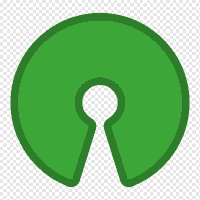
Podgrab
- 0 ratings

Lightweight podcast manager and automatic podcast episode downloader. It will monitor podcasts for your and download them automatically whenever a new episode goes live.
Self-host this app for $0.99/mo only!
Current Version -2022.07.07
A self-hosted podcast manager to download episodes as soon as they become live
Explore the docs »
Report Bug
·
Request Feature
·
Screenshots
Podgrab is a is a self-hosted podcast manager which automatically downloads latest podcast episodes. It is a light-weight application built using GO.
It works best if you already know which podcasts you want to monitor. However there is a podcast search system powered by iTunes built into Podgrab
Developers Note: This project is under active development which means I release new updates very frequently. It is recommended that you use something like watchtower which will automatically update your containers whenever I release a new version or periodically rebuild the container with the latest image manually.
Also check out my other self-hosted, open-source solution - Hammond - Vehicle and Expense management system.
Podgrab started as a tool that I initially built to solve a specific problem I had. During the COVID pandemic times I started going for a run. I do not prefer taking my phone along so I would add podcast episodes to my smart watch which could be connected with my bluetooth earphones. Most podcasting apps do not expose the mp3 files directly which is why I decided to build this quick tool for myself. Once it reached a stage where my requirements were fulfilled I decided to make it a little pretty and share it with everyone else.
The easiest way to run Podgrab is to run it as a docker container.
Simple setup without mounted volumes (for testing and evaluation)
docker run -d -p 8080:8080 --name=podgrab akhilrex/podgrabBinding local volumes to the container
docker run -d -p 8080:8080 --name=podgrab -v "/host/path/to/assets:/assets" -v "/host/path/to/config:/config" akhilrex/podgrabModify the docker compose file provided here to update the volume and port binding and run the following command
version: "2.1"
services:
podgrab:
image: akhilrex/podgrab
container_name: podgrab
environment:
- CHECK_FREQUENCY=240
# - PASSWORD=password ## Uncomment to enable basic authentication, username = podgrab
volumes:
- /path/to/config:/config
- /path/to/data:/assets
ports:
- 8080:8080
restart: unless-stopped docker-compose up -dAlthough personally I feel that using the docker container is the best way of using and enjoying something like Podgrab, a lot of people in the community are still not comfortable with using Docker and wanted to host it natively on their Linux servers. Follow the link below to get a guide on how to build Podgrab from source.
Build from source / Ubuntu Guide
| Name | Description | Default |
|---|---|---|
| CHECK_FREQUENCY | How frequently to check for new episodes and missing files (in minutes) | 30 |
| PASSWORD | Set to some non empty value to enable Basic Authentication, username podgrab |
(empty) |
| PORT | Change the internal port of the application. If you change this you might have to change your docker configuration as well | (empty) |
Distributed under the GPL-3.0 License. See LICENSE for more information.
Akhil Gupta - @akhilrex
Project Link: https://github.com/akhilrex/podgrab
Please login to review this project.
No reviews for this project yet.
Material Design inspired YouTube downloader, based on youtu…
Syncs YouTube channels and playlists to a locally hosted me…
Eonza is used to create scripts and automate tasks on serve…
Comments (0)
Please login to join the discussion on this project.